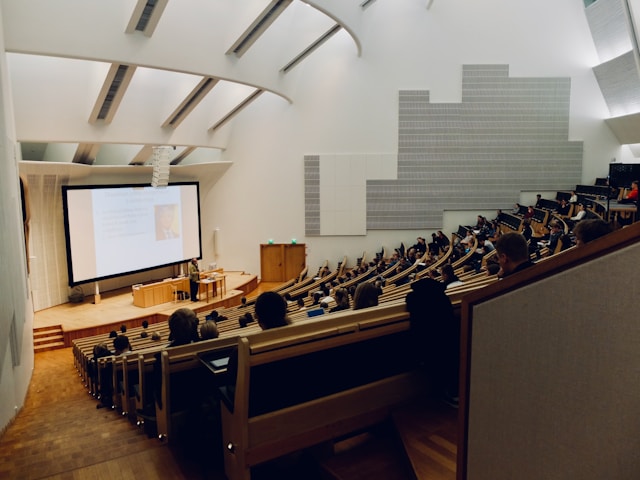Digital tools for supporting the employment of people with disabilities in manufacturing
certification centre
Welcome to the ENABLE project Erasmus+ certification center.
The goal of this training is to enhance the skills of employees and managers of manufacturing companies in the use of digital tools for the inclusion of people with disabilities in the workplace.
The training is for you if:
- You are a manager or employee in a manufacturing company.
- You want to gain a better understanding of the challenges and opportunities related to the inclusion of people with disabilities in the workplace.
- You are interested in learning how to use digital tools to support the inclusion of people with disabilities.
The training is organized into four comprehensive modules:
- CU1: Familiarity with Digital Solutions for Supporting Employees with Disabilities
- CU2: Emotional and technological bias management (removing barriers to technology)
- CU3: Safety and security in technological use for work-based process
- CU4: Creating a Safe Environment/Community for Voicing Opinions for Employees
Each module consists of a booklet with information, and after studying the material, you can take a quiz to test your knowledge. If you pass the quiz, you will receive a certificate of completion.
We encourage you to explore our modules and take advantage of this valuable opportunity to learn how to use digital tools to support the inclusion of people with disabilities in the workplace.
training plan
The course material includes a variety of training content aimed at achieving specific learning objectives that will help you pass each module and successfully complete the Certification Quiz.
PHASES OF TRAINING:
- Read the Booklet of each module to go deeper into the topics covered.
- You can also view the slideshow that gives all the information in a summarised form.
- Watch the videos (provided via links)
- Once you have completed the above steps, you will be ready to take the quiz, which consists of 20 questions with 3 answer options. In order to obtain the micro-credential certifying that you have successfully completed the training, you must achieve at least 60% of correct answers to the questionnaire.
Shall we get started?
CU1 - Familiarity with Digital Solutions for Supporting Employees with Disabilities
Learning objectives:
Understand the importance of digital inclusion for employees with physical disabilities
Identify different types of physical disabilities and their potential impact on workplace tasks
Explore a variety of assistive technologies (AT) that can support employees with physical disabilities
Learn how to match AT to the specific needs of individual employees
Understand the process of implementing and maintaining AT in the workplace
Create a more inclusive and supportive work environment for employees with disabilities
Topics covered:
The importance of digital inclusion
Legal and ethical considerations
Overview of Project ENABLE
Types of physical disabilities
Assistive technologies (AT):
Matching AT to employee needs
Assessment and procurement of AT
Training and support for employees using AT
Workplace culture and AT adoption

CU2 - Emotional and Technological Bias Management (Removing Barriers to Technology)
Learning objectives:
Define the concepts of emotional and technological biases.
Understand the Technology Acceptance Model (TAM) and the Unified Theory of Acceptance and Use of Technology (UTAUT).
Explore the impact of biases on technology acceptance and usage.
Identify strategies for mitigating emotional and technological biases.
Discuss the future of technology acceptance and emerging trends.
Understand the ethical considerations and challenges related to technology and emotions, particularly for people with disabilities.
Topics covered:
Emotional and technological biases.
Technology Acceptance Model (TAM) and Unified Theory of Acceptance and Use of Technology (UTAUT)
Strategies for mitigating biases
The future of technology acceptance

CU3 - Safety and Security in Technological Use for Work-Based Processes
Learning objectives:
Understand the importance of safety and security in the use of technology for work-based processes.
Identify potential risks associated with the integration of technology in the workplace.
Learn strategies for mitigating these risks and enhancing cybersecurity.
Understand the role of technology in enhancing security and protecting employees.
Gain insights into real-world case studies of cybersecurity incidents.
Grasp the challenges and future directions in the field of cybersecurity.
Topics covered:
The importance of safety and security:
Cybersecurity threats:
Strategies for ensuring safety and security
Case studies
The role of technology in enhancing security
Challenges and future directions

CU4 - Creating a Safe Environment/Community for Voicing Opinions for Employees
Learning objectives:
Understand the importance of psychological safety in the workplace.
Define psychological safety and its key components.
Recognize the benefits of a psychologically safe environment.
Identify challenges to open communication.
Learn strategies for fostering psychological safety.
Understand the role of leadership in creating a psychologically safe environment.
Explore ways to measure and evaluate psychological safety.
Promote continuous improvement in fostering psychological safety.
Topics covered:
Introduction to psychological safety
Benefits of open communication
Challenges to open communication
Understanding psychological safety
Strategies for fostering psychological safety
Evaluating and improving psychological safety
Continuous improvement


Co-funded by the European Union. Views and opinions expressed are however those of the author(s) only and do not necessarily reflect those of the European Union or the European Education and Culture Executive Agency (EACEA). Neither the European Union nor EACEA can be held responsible for them.
[Project Code: 2023-2-RO01-KA210-VET- 000174259]
